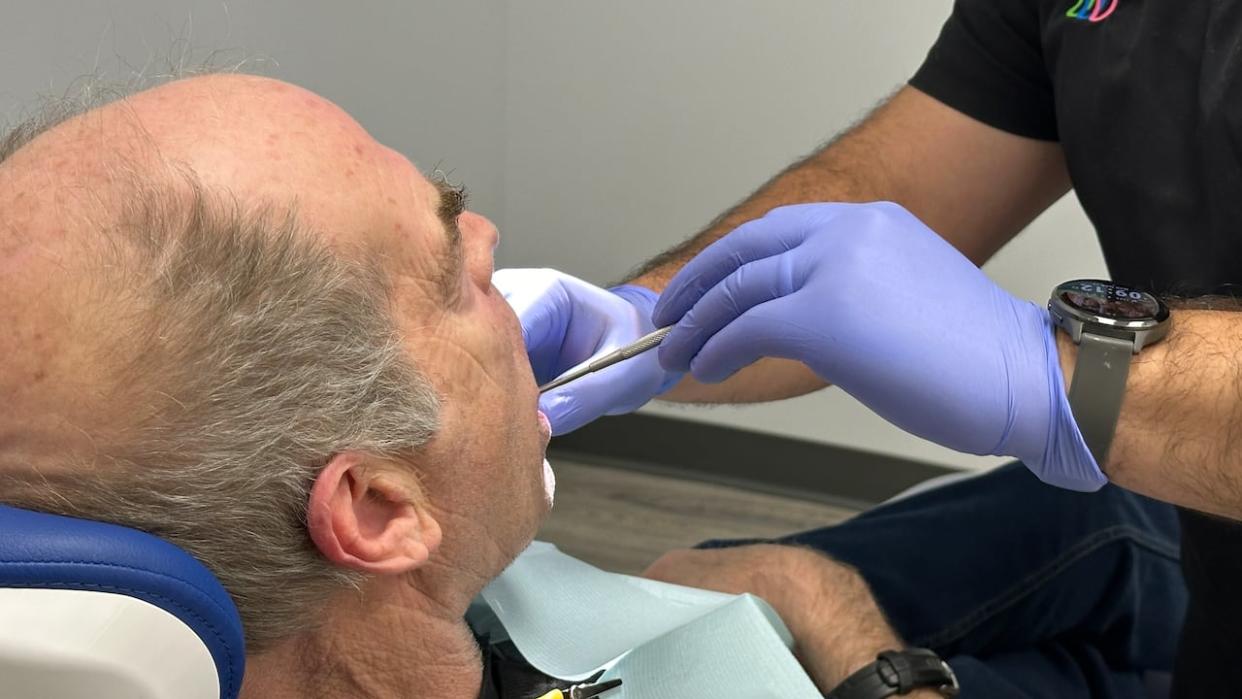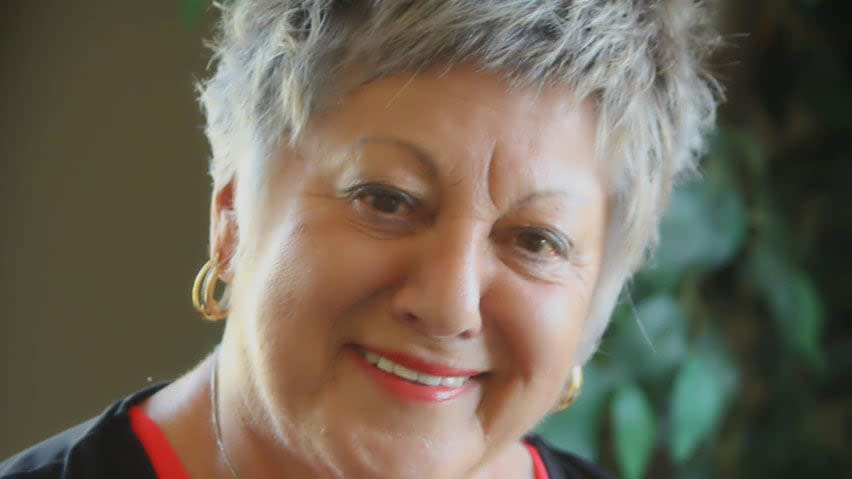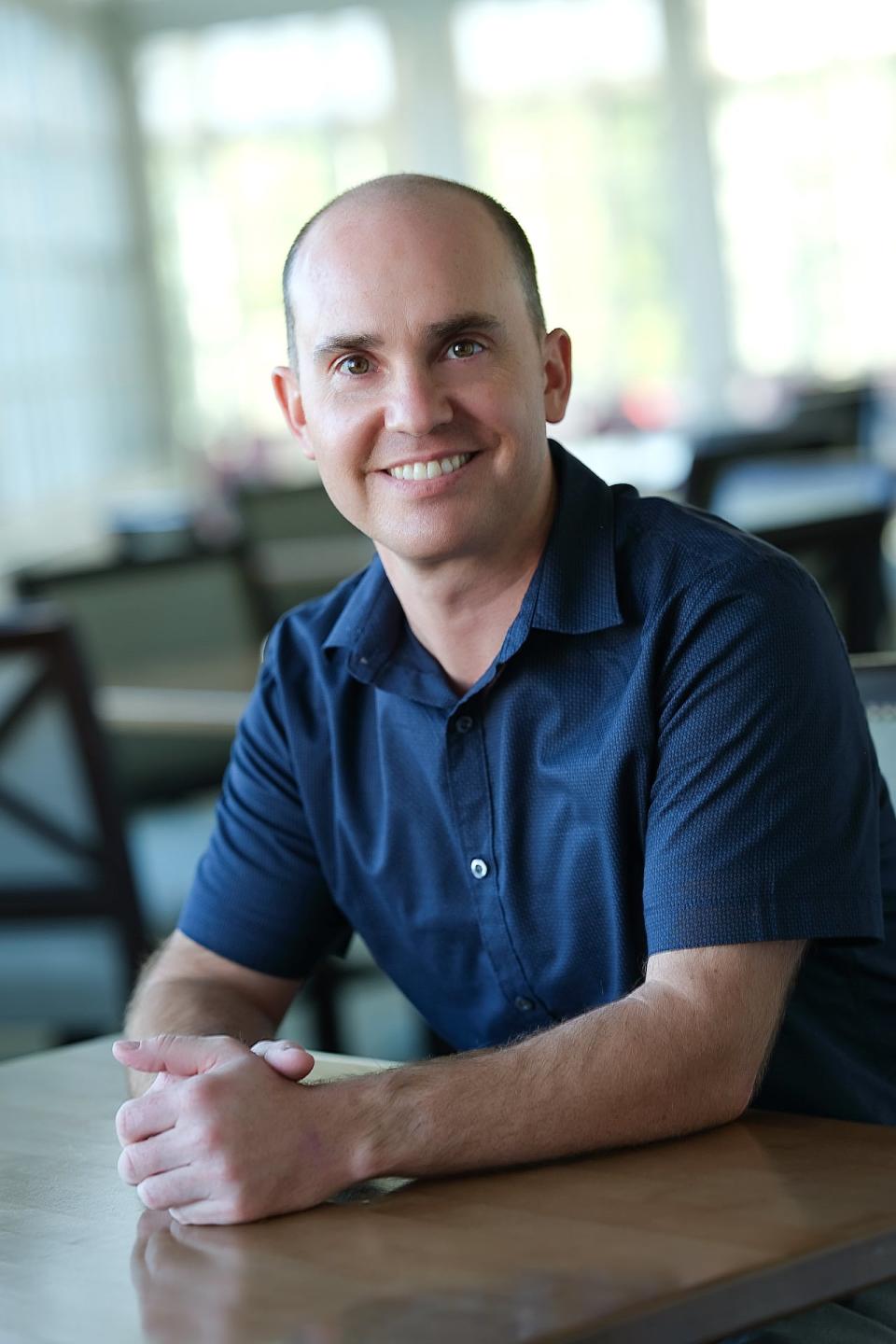National dental care plan set to launch amid lingering questions from N.B. seniors

Canada's $13-billion national dental care plan launches this week, but questions still remain for the thousands of New Brunswick seniors who qualify for the program.
Some are so confused, they don't even know whether to sign up, says Cecile Cassista, the executive director of the Coalition for Seniors and Nursing Home Residents' Rights.
She said many seniors have been told their dentists won't participate in the program because of perceived problems with the plan. So although they'd like to take advantage of the program, they don't want to switch to a new dentist.
Nor do they want to cancel their private coverage amid so much uncertainty — something they'd have to do in order to qualify for the new program.
While she wishes the rollout had been smoother, Cassista does welcome the coverage. She said a lot of seniors forgo dental care because they just can't afford it.
After paying for food and medication, Cassista said some seniors just don't have enough money left over. As a result, she said some haven't been to a dentist in years and some have lost their teeth as a result.

Cecile Cassista, executive director of the Coalition for Seniors and Nursing Home Residents’ Rights, says she's heard from a lot of seniors confused about eligibility requirements for the new national dental care plan. (Submitted by Cecile Cassista)
Starting this month, the Canadian Dental Care Plan, announced in December, will provide low- and middle-income Canadian residents with dental insurance for those who don't have private coverage.
The national program is supposed to eventually apply to one-quarter of Canadians, but Ottawa is rolling out eligibility gradually, starting with seniors. An interim dental plan has been covering kids under the age of 12 since December 2022.
WATCH | N.B. dentists say Ottawa must make changes to national plan:
According to Employment and Social Development Canada, 45,572 New Brunswickers have enrolled in the plan as of April 23, while across Canada, 1.8 million have joined.
According to data compiled by Statistics Canada, 62 per cent of New Brunswickers visited a dental professional in the past 12 months, which was the fourth-lowest of Canadian provinces.
The data also showed 31 per cent of all New Brunswickers do not have dental insurance. For those over 65, that figure jumps to 57 per cent.
Dentists reluctant to participate
Until recently, dentists were required to enrol in the program in order to be reimbursed for services. On April 17, the government announced that dentists can bill Sun Life — the insurance company that manages the program — directly, without formally signing up for the program.
Until that point, only five New Brunswick dentists had enrolled, said Paul Blanchard, the executive director of the New Brunswick Dental Society.
Fredericton dentist Matthew Moore says he has no intention of offering services under the plan as it currently exists.

Matthew Moore is a dentist in Fredericton and past president of the New Brunswick Dental Society. He says the new plan gives dentists more administrative work and pays them less money than they normally get for procedures. (Submitted by Matthew Moore)
Moore, past president of the dental society, said dentists are expected to do more work for less pay. Specifically, more paperwork than for other dental plans, while making less money than they're currently paid.
He estimates New Brunswick dentists will make an average of 80 to 84 per cent under the program compared to what they usually get.
He also said there's no option under the new program "for patients to pay up front and be reimbursed directly from Health Canada. They've put the burden on dental practices to administer the program."
Moore said dentists are also worried about the province's "capacity to handle an influx of patients into our practices."
He said he can't take on any more patients in his practice and he's not alone.
"We have a significant shortage of dental assistants, of dental hygienists and administrative staff, and that is also a concern if we have a large influx of new patients. That's a big workload for our staff and for our practices."
Moore said dentists have already taken on a lot of work answering patient questions — even before the program has begun.
"And it puts us in a very difficult position because we're having to answer questions about a program that we know very little about," he said.
"There's a lot of misinformation out there. There's a lot of misunderstanding."
Moore said he's not completely ruling out joining the program — but only if significant changes are made, including no requirement to sign up, less administrative work for dental offices, and full payment for dentists according to already-established fee structures.
"We're not closing the door completely. We just are not able to participate currently the way it is," said Moore.
Blanchard said the New Brunswick Dental Society warned the federal government in November that the plan "must respect the provincial fee guides in order to encourage providers to participate in the plan."
The details
The program only covers some types of dental work — procedures like scalings, fillings, root canals and dentures.
According to the government website, if you have existing private dental care insurance, you do not qualify for the new program.
In an emailed response on Thursday, a spokesperson with Employment and Social Development Canada clarified by saying seniors who have private coverage are not eligible, but those with "dental coverage through a provincial, territorial or federal government social program" can qualify.
"If you meet all the eligibility criteria, your coverage will be coordinated between the plans to ensure there are no duplication or gaps in coverage," stated the email.
According to the government website, "if you purchased your current dental insurance policy privately ... you're not eligible for the CDCP while that coverage is in effect." That policy must be cancelled before an applicant will be accepted into the new federal plan.
The email went on to list the criteria. Applicants must:
Not have access to dental insurance.
Have an adjusted family net income of less than $90,000.
Be a Canadian resident for tax purposes.
Have filed your return in the previous year.
There is also a significant co-pay for those with household net incomes between $70,000 and $90,000.
Families with incomes between $70,000 and $79,999 will have to pay 40 per cent out of pocket. For those in the $80,000 to $89,999 income bracket, the co-pay jumps to 60 per cent.

 Yahoo News
Yahoo News 
